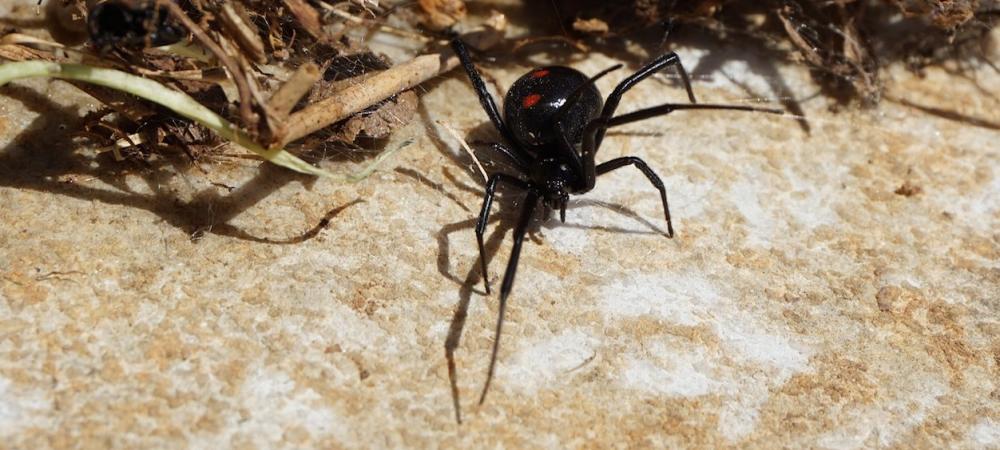Spiders in North Carolina: Which Ones Are Dangerous?

Spiders are a common part of life in North Carolina, especially in warmer months when they’re most active. While the sight of a spider might cause alarm, most species you’ll encounter around your home or yard are harmless—and even helpful. These eight-legged creatures play an important role in keeping pest populations like mosquitoes and flies in check.
Still, it's important to know which spiders are beneficial and which ones could pose a risk, especially if you're seeing more of them indoors. This guide will help you tell the difference.
Common Harmless Spiders in NC
Most spiders in North Carolina won’t cause any harm to you or your family. In fact, they’re some of nature’s best pest control agents. Here are a few of the most common harmless species:
- Orb-Weavers: Known for their large, circular webs, these spiders often build in trees, shrubs, or the corners of porches. Their intimidating size and appearance might be off-putting, but orb-weavers are non-aggressive and excellent at controlling flying insects.
- Jumping Spiders: Small, compact, and often curious, jumping spiders are easy to spot by their jerky movements and bold patterns. They’re not interested in people and rarely bite.
- Wolf Spiders: These ground-dwelling hunters are large and hairy, which can make them look threatening. But they don’t build webs and are generally solitary and harmless, preferring to chase down prey instead of spinning traps.
These species don’t seek out human interaction and typically avoid indoor environments unless accidentally brought in.
Dangerous Spiders in NC to Watch For
While most spiders are harmless, a few species in North Carolina can pose a danger if disturbed. It’s rare to encounter them, but knowing what to look for can help you take the right precautions.
Black Widow Spider
- Appearance: Shiny black body with a distinctive red hourglass marking on the underside of the abdomen.
- Where They Live: Often found in woodpiles, garages, sheds, basements, and crawl spaces—anywhere dark and undisturbed.
- Bite Symptoms: Sharp pain or burning at the site, muscle cramps, nausea, and in some cases, difficulty breathing.
- When to Seek Help: If bitten, it’s best to seek medical attention—especially for children, the elderly, or anyone with underlying health conditions.
Brown Recluse Spider
- Appearance: Light to medium brown with a violin-shaped marking on its back.
- Where They Hide: Prefer quiet, indoor areas like attics, closets, boxes, and behind furniture.
- Bite Symptoms: May start as a mild sting, developing into a blister or ulcer. In some cases, skin around the bite becomes necrotic.
- When to Seek Help: Medical treatment is strongly recommended for any suspected brown recluse bite.
Other Species
Occasionally, North Carolinians might encounter false black widows or yellow sac spiders, which can bite but typically cause only minor symptoms. These are not considered medically significant.
How to Identify a Spider Problem
Noticing a spider here or there is normal, but certain signs may indicate a larger issue inside your home:
- Frequent spider sightings indoors, especially in bedrooms, bathrooms, or basements.
- Webs appearing in corners, crawl spaces, garages, or near light sources where insects gather.
- Egg sacs or molted skins, often found tucked away in storage areas, cardboard boxes, or ceiling corners.
If you're seeing more spiders than usual or spotting multiple signs at once, it may be time to take action.
Safety and Prevention Tips
While you can’t eliminate spiders from the outdoors, there are steps you can take to reduce their presence inside your home:
- Seal entry points by caulking cracks around windows, doors, and the foundation.
- Reduce clutter in storage areas, basements, and garages—spiders love dark, undisturbed spaces.
- Store firewood away from your home and check it before bringing it inside.
- Wear gloves when moving boxes, cleaning out closets, or working in the yard.
Keeping your home clean, dry, and well-sealed goes a long way in minimizing spider activity.
When to Call a Pest Control Professional
Some spider problems go beyond what prevention can fix. If you suspect dangerous species like black widows or brown recluses, or if spider activity keeps returning no matter what you do, it’s time to call in the pros.
- Suspect a venomous spider indoors? Do not take the risk, contact a professional to avoid serious risks to you and your loved ones.
- Dealing with ongoing spider issues or just want to take preventative measures? Tailor Made offers targeted spider control services tailored to your specific wants and needs.
Professionals can identify nesting areas, eliminate current populations, and prevent future infestations—without guesswork.
Key Takeaways
Spiders are a natural part of North Carolina’s ecosystem, and most of them are more helpful than harmful. Still, knowing how to identify the few dangerous ones—and when to act—is key to keeping your home safe and comfortable.
For ongoing problems or peace of mind, Tailor Made is here to help with effective, professional spider control tailored to your home.
